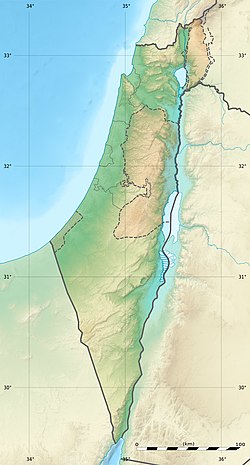Maresha
 |
|
| UNESCO World Heritage Site | |
|---|---|
| Location |
Israel |
| Criteria | v |
| Reference | 1370 |
| Coordinates | 31°35′35″N 34°53′54″E / 31.59306°N 34.89833°ECoordinates: 31°35′35″N 34°53′54″E / 31.59306°N 34.89833°E |
| Inscription | (Unknown Session) |
|
[]
|
|
Tel Maresha (Hebrew: תל מראשה) is the tell (archaeological mound) of the biblical Iron Age city of Maresha, and of the subsequent, post-586 BCE Idumean city known by its Hellenised name Marisa,Arabised as Marissa (ماريسا). The tell is situated in Israel's Shephelah region, i.e. in the foothills of the Judaean Mountains. It was first excavated in 1898-1900 by the British archaeologists Bliss and Macalister on behalf of the Palestine Exploration Fund and again after 1989 by Israeli archaeologist Amos Kloner on behalf of the Israel Antiquities Authority. The majority of the artifacts of the British excavation are to be found today in the Istanbul Archaeology Museums.
This site is now protected as part of Bet Guvrin-Maresha National Park and recognized by UNESCO as a World Heritage Site.
Maresha was one of the cities of Judah during the time of the First Temple and is mentioned among the conquests of the ancient Israelites in the Book of Joshua and later in the Books of Chronicles as one of King Rehoboam's fortifications. According to the Madaba Map, Maresha was the place "whence came Micah the Prophet." In the 6th century BCE, as result of Zedekiah's rebellion against the Babylonian kingdom and its king Nebuchadnezzar II, the latter occupied the Judean kingdom and sent many of its inhabitants into exile. This marked the end of Maresha as a Judahite city.
...
Wikipedia

